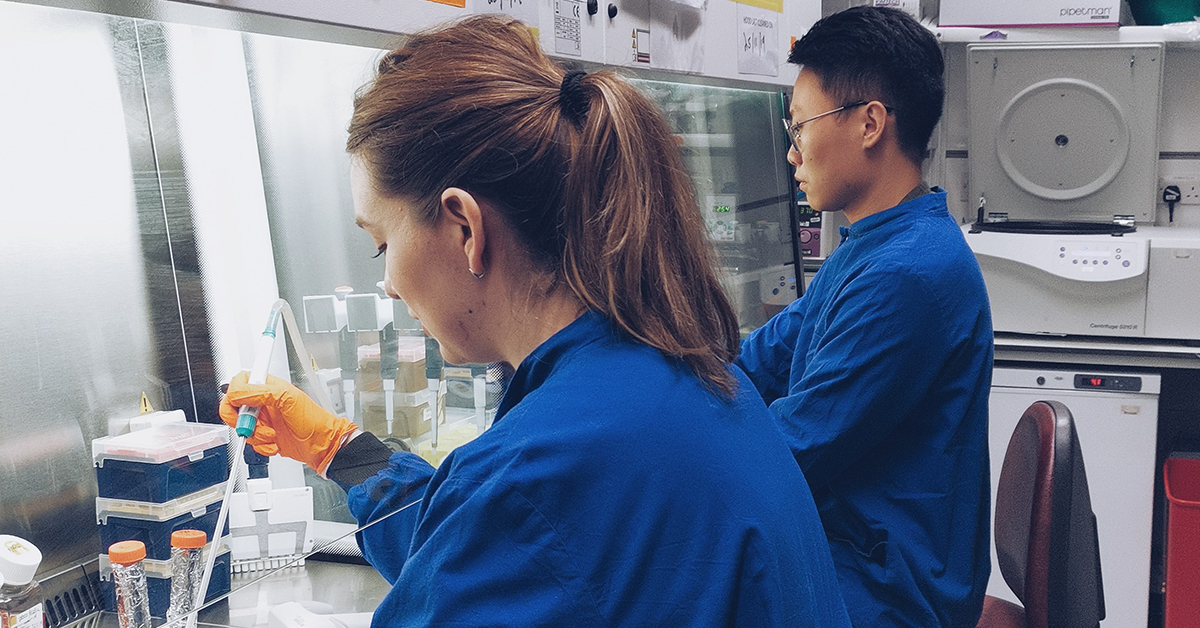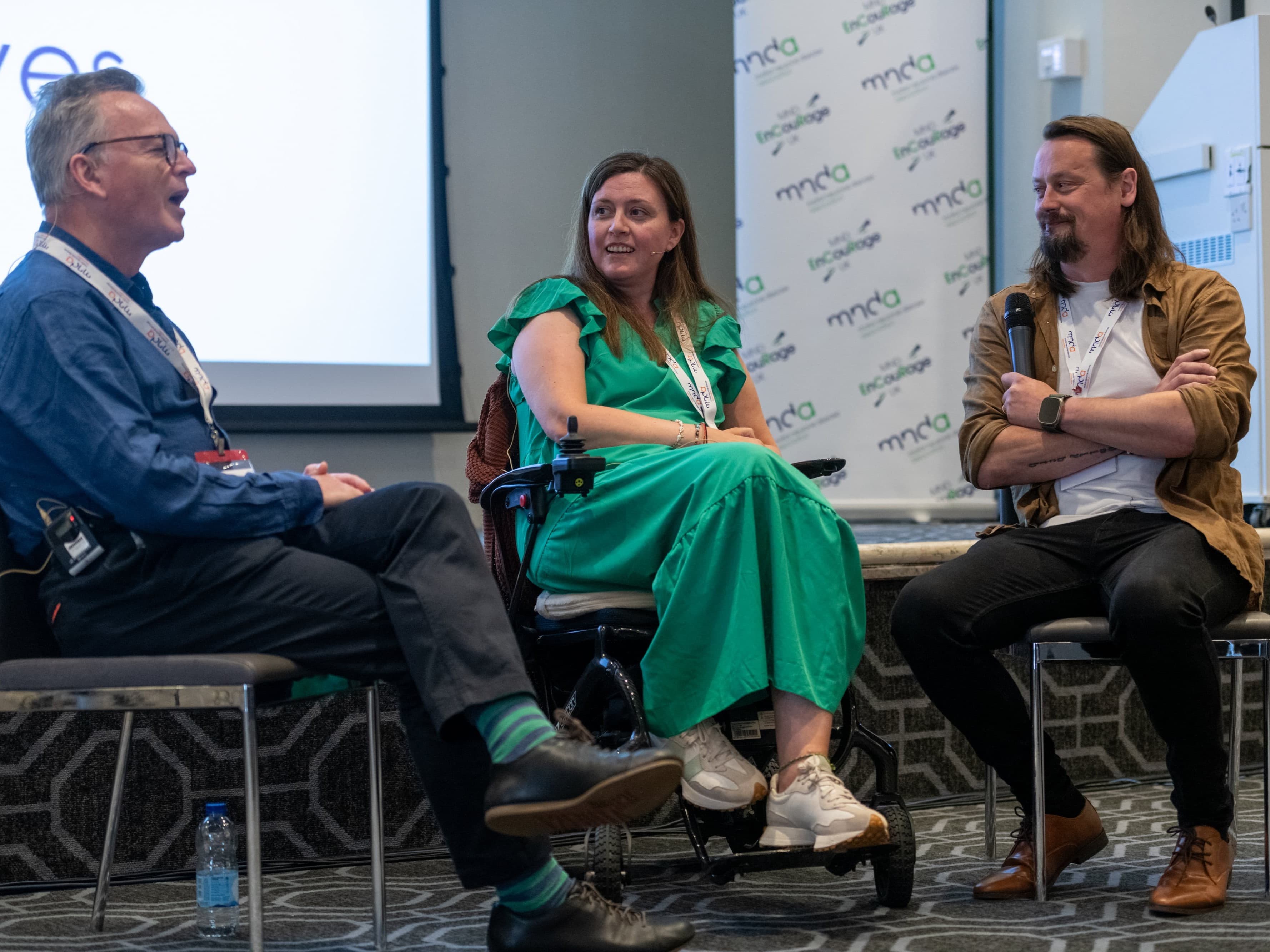Cure Finders play a huge role in driving forward MND research, helping to fund the work of researchers who dedicate their time to understanding this devastating disease.
Among them is Dr Ben Clarke, a post-doctoral researcher, who works alongside Dr Rickie Patani at the Francis Crick Institute in London.
In July, Dr Clarke, who is among the next generation of MND researchers, attended the MND Association’s EnCouRage event, bringing together trailblazing MND researchers at the very start of their careers. Throughout September, Dr Clarke is one of the faces behind the Association's September Appeal, which encourages supporters to become Cure Finders by supporting MND research with a regular donation.
In this feature, Dr Clarke answers some of our questions and explains how his work could hold the key to developing potential new treatments for MND in the future.
Dr Clarke working in the lab
Can you explain more about your research?
“Research suggests that cells known as astrocytes and microglia are thought to contribute to motor neurone death in MND and my research aims to understand how the cells impact progression and whether the two cells combine to cause damage.
“We grow the cells using stem cells from people who are living with MND and healthy control specimens. We will then compare them and look for any changes. This knowledge enables us to manipulate the cells to try and correct the damage.
“If we can identify the changes, we can develop new drugs to target them.”
You attended the MND Association’s EnCouRage event in July. What made it so important for you to be there?
“It's critical because we need to learn to communicate effectively, otherwise it's just lots of scientists talking to each other.
“I'm personally supported by the Association, so events like EnCouRage are really, really critical for communicating that science to the wider public.”
How important is the funding you receive from the MND Association?
“Without support from the MND Association, I wouldn't be doing what I'm doing currently in my research. It’s the support from the wider public which allows us to do what we do.”




